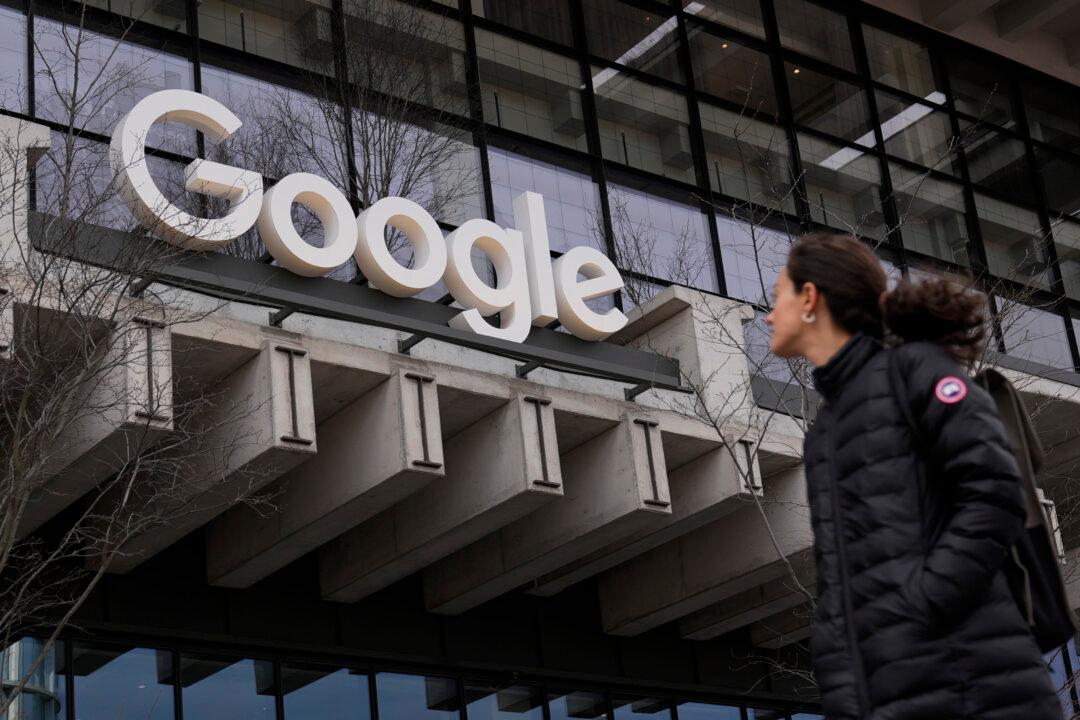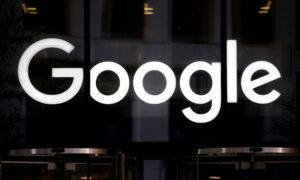I’m glad to report that Google’s stock valuation has suffered following the incredible disaster that came with its artificial intelligence (AI) engine called Gemini. The stock of parent company Alphabet is down by 13.2 percent from the start of the year, not exactly what one would expect from this company that only knows up and up.
No question that its AI rollout was to blame.
The bias is utterly preposterous. It should have been called Orwell. It is so far down the distance toward the Davos agenda that it creates an alternative universe of pure fakery.
Most famously, the image generator simply would not create a white person, no matter what you asked. We got plenty of images of popes who are women of color and so on but not one white dude. Behind the outrage was not some weird fetish for seeing this or that. It was simply a matter of historical, geographical, and demographic reality.
That’s only the beginning of the problems. The engine trashes the reputation of every dissident and extols the glories of every deep-state spokesperson.
Just now, I asked Gemini to compare and contrast The New York Times with The Epoch Times. The results are worse than predictable. The NY Times is proclaimed to be “widely respected” and “a reliable source of news” with “a long history and established journalistic standards.” Epoch is “far right” and “criticized for spreading misinformation and conspiracy theories” whose “content is often flagged or removed by social media platforms for violating community guidelines.”
Talk about ham-handed! This thing is completely off the charts in terms of bias. It’s nothing but regime propaganda.
Just consider what it says about Brownstone Institute: “The Institute’s views on COVID-19 run contrary to established scientific consensus on the effectiveness of public health measures like lockdowns, masks, and vaccines.”
Can you believe they are still defending all this nonsense?
It was rather obvious to everyone that if the AI engine is this terrible, perhaps its search engine, on which 96 percent of users rely, is just as bad. Then people started thinking it through. Is this why search generates terrible criticisms of everything that people like and extols all that accords with the Great Reset agenda, including its most “woke” applications? Indeed.
Then the stock started taking a hit. After all, if the use of the search tool fails, everything else fails too, including its advertising and so much more. The empire is vulnerable to the Bud Light treatment, the same as any institution. That affects company valuations. The stock market told the truth. Nowadays, companies are scared in a way that they never used to be.
Go woke, go broke: It’s real. It happens. It’s happening to many companies. It could happen to Google.
As a result, the company decided to send out an apology! Can you imagine that? It’s because the whole of corporate America watched as Bud Light stonewalled itself to the point that it very nearly killed the brand itself. No one wants that to happen.
Thus are we living in a new age of the fake apology. More or less it comes down to: We’re sorry that you are upset. Of course, that is not a genuine mea culpa. It is the avoidance of an apology. It is making excuses by blaming others. That is exactly what Google did.
“It’s clear that this feature missed the mark,” they wrote. “Some of the images generated are inaccurate or even offensive. We’re grateful for users’ feedback and are sorry the feature didn’t work well. We’ve acknowledged the mistake and temporarily paused image generation of people in Gemini while we work on an improved version.”
What precisely is this “mistake”? That they got in trouble with users, which they have discerned based on feedback. That’s one way to put it when the whole internet explodes in a rage.
What’s missing here? They don’t explain what the mark is or how they missed it. I think we know: They want to exercise extreme bias but not have people notice it. In other words, they are upset that you are upset. They missed the mark by showing their hand. Working well means in this case that they get away with it. Instead, they got caught. They are sorry about that.
They elaborate: “So what went wrong? In short, two things. First, our tuning to ensure that Gemini showed a range of people failed to account for cases that should clearly not show a range. And second, over time, the model became way more cautious than we intended and refused to answer certain prompts entirely—wrongly interpreting some very anodyne prompts as sensitive.”
This is the excuse-making stage. We really did intend well! Our hearts were in the right place!
Here again, they are sorry that their attempt to program how you think about the world, rather than deferring to what the users want, was revealed for all the world to see. They were so cautious about being politically correct that they massively distorted reality itself.
The company can assure us over and over that Gemini is different from its search engine, but we know otherwise. This is a major problem with company culture itself. It’s nearly universally woke. Those who are there who are not woke quickly learn to keep quiet and survive.
Above all else, Google refuses to admit what everyone obviously knows, namely that the absurd results of Gemini were entirely deliberate. It was programmed that way. It was in the code. The only mistake was making it unbearably obvious.
That Google refuses to admit this is a huge problem. This kind of apology is no better than that offered by Bud Light. It is a denial of the real root: that they betrayed their users on behalf of a political cause, thereby proving that they are on a definite political team and not on the side of those who have made the company rich and successful. So yes, they have deleted their whole point of existing.
They would have been far better off with a more simple statement:
“We massively screwed up, and this screwup reveals more fundamental problems with our company and its products. We have fired the team that built that engine. Further, we have initiated a full review of this problem—one we all know exists—and will seek solutions that defer more to users rather than some strange political agenda from within the company.”
Such a statement would have been a breath of fresh air. But it would never happen. This company will never change. And this is why you should immediately grab your smartphone and change the default search engine. There are other options. Google does not merit your business.
The rollout of these AI engines comes at an auspicious time. The world was utterly shattered by the lockdowns that caused mass addiction to digital media and the destruction of millions of real-world businesses. Within a matter of months after lockdowns were finally lifted, suddenly we were greeted with the magic of AI.
And yet most AI engines are overwhelmed by bias. If you doubt it, ask about vaccine injury or some other controversial topic. You will find that they acknowledge no controversy at all. They are trying to reprogram your brain in exactly the way government censors would prefer. They are supposed to broaden our knowledge, but in fact, most corporate AI programs narrow your knowledge to only the conventional wisdom that government wants you to have.
The only exception out there is the marvelous AI tool created by the platform X, which is Twitter after Elon Musk bought it. Its AI machine is called Grok. It’s not perfect, but it is the only one not giving censored results that fit with regime narratives. Hard to know what we would do without X today, but therein lies a real problem. Can the future of an entire technological revolution really rely on the integrity of one company?
We trusted Google, and look where that got us.







